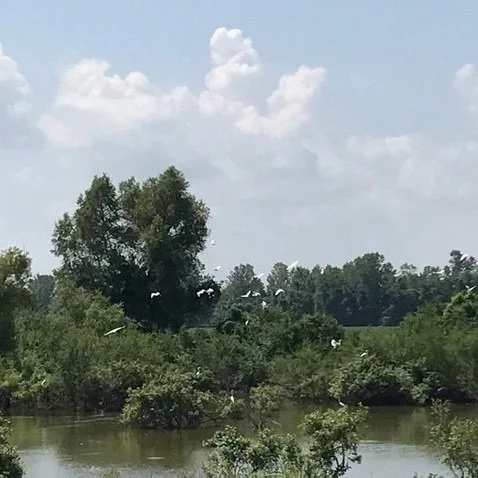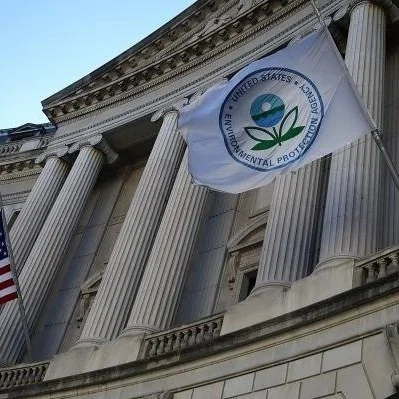Farmers need rules that clearly define federal jurisdiction of Waters of the United States (WOTUS). The American Farm Bureau Federation today submitted comments to the Environmental Protection Agency (EPA) and the Army Corps of Engineers, detailing the impact WOTUS has on farmers and elements that must be included in the new proposed rule to ensure it can withstand future legal challenges.
Read MoreRanchers and farmers across the country are calling for simpler water rules following decades of uncertainty regarding the definition of what is a federally regulated waterway.
On April 22, the American Farm Bureau Federation submitted formal comments to the Environmental Protection Agency urging it to revise the definition of “Waters of the United States” pursuant to the Supreme Court’s ruling in Sackett v. EPA in 2023.
Read MoreThe U.S. Supreme Court made significant changes in the Waters of the U.S. rules in Sackett vs. EPA, but it left unclear the legal meaning of a term that has concerned farm organizations and their leaders for years.
“The Sackett case specifically overturned the Significant Nexus test,” said Brigit Rollins, a staff attorney with the National Agricultural Law Center. (Significant Nexus is a term that applied to the connection between wetlands and lakes, rivers and streams.)
Read MoreThe Environmental Protection Agency (EPA) announced new Waters of the U.S. (WOTUS) rules on Tuesday, following a May Supreme Court ruling in Sackett v. EPA, that required EPA to revise the WOTUS definition.
Read MoreThe Environmental Protection Agency has amended the Waters of the U.S. Rule. EPA’s Agricultural Advisor Rod Snyder tells Brownfield, “We’re basically, specifically addressing the removal of the significant nexus test as well as the adjacency test for wetlands. Those are things the Supreme Court was very clear about.”
Read MoreAgriculture groups have asked a federal court to order the Biden administration to implement immediate changes to the waters of the U.S. rule following the Supreme Court's ruling in Sackett v EPA that essentially left the current rule unenforceable.
Read MoreThe U.S. Supreme Court on Thursday ruled that the federal government does not have authority under the Clean Water Act over millions of acres of wetlands, which could make it easier to develop wetlands near rivers, lakes and streams.
At least some state regulators don’t see a big impact in Louisiana, though not every expert agrees.
Read MoreIt’s difficult to imagine any issue that has captured more attention and time and resources of U.S. farmers and agricultural groups than the debate over the Waters of the U.S. or WOTUS definition in the Clean Water Act.
Since passage in 1972 the WOTUS definition in the amendments to the Federal Water Pollution Control Act of 1948 has been a lightning rod for farm and environmental groups debating how far the federal government should go in protecting water.
Read MoreOver the objection of EPA attorneys, a federal judge on Wednesday granted agriculture groups' motion to intervene in an ongoing lawsuit filed by 24 states challenging the Biden administration's waters of the U.S. rule.
Though the WOTUS rule took effect on March 20, the U.S. District Court for the District of North Dakota also is considering a motion filed by the states for a preliminary injunction.
Read MoreA federal judge in Texas put WOTUS on hold in two states over the weekend but denied a concentrated effort by industry groups to stop the rule nationwide. The controversial Waters of the United States (WOTUS) rule takes effect today (Mar. 20, 2023).
Read MoreEPA announced a new definition for “waters of the United States” strikingly similar to the WOTUS designation in place before 2015.
Read MoreWhile testifying before a Senate committee recently, Environmental Protection Agency Administrator Michael Reagan says EPA will continue its rulemaking process as the Supreme Court decides on the fate of the current definition of the waters of the U.S.
“We are currently continuing our roundtable discussions with our farmers and elected agricultural officials,” Reagan says. Although the agency is still dealing with some uncertainty in terms of courts’ decisions, Reagan says EPA is taking into consideration many of the concerns in the agricultural community as well as those on the other side of the issue.
Read MoreAs the Supreme Court considers a crucial wetlands determination case under the Clean Water Act, Republican senators joined agricultural groups in requesting the Environmental Protection Agency and Army Corps of Engineers suspend their rulemaking to redefine the scope of waters protected under the Clean Water Act.
Read MoreThe new proposed water regulations by the Biden administration are going to require a lot of time, money and labor to implement for farmers, “and we don’t have any of those,” shares Ted Schneider, Lake Providence, Louisiana cotton farmer and vice chairman of the National Cotton Council.
Schneider was candid in his comments on the new waters of the U.S. rule being formulated by the Biden administration during a Small Business Administration agricultural stakeholder listening session on January 6.
Read MoreMember farmers from the American Farm Bureau Federation will participate in a roundtable on Thursday, Jan. 6, about the impact of the proposal to repeal and replace the Navigable Waters Protection Rule (NWPR). The event is hosted by the Small Business Administration (SBA) Office of Advocacy. Arizona Farm Bureau President Stefanie Smallhouse and Colorado Farm Bureau Vice President James Henderson will join several other farmers attending the roundtable to explain why this rule is so consequential for agriculture.
Read More













